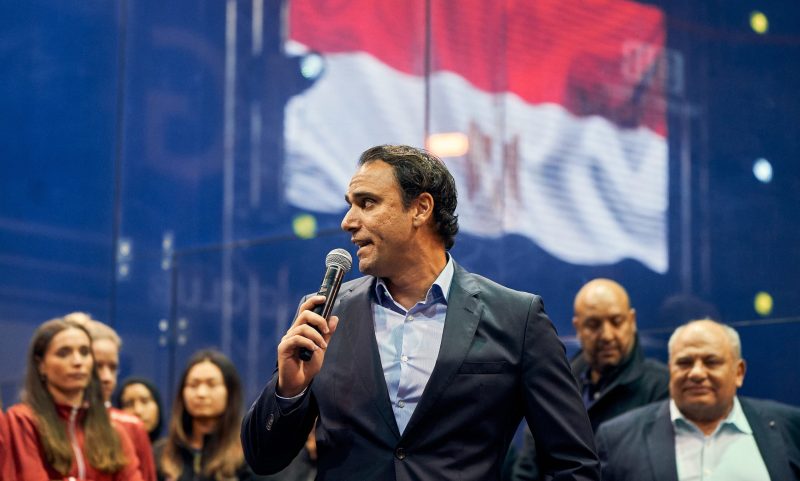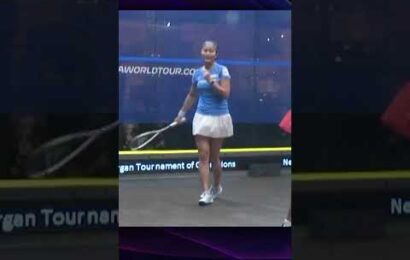
For the past 10 years, former World No.1 and current World Squash Federation Vice President Karim Darwish has run the Wadi Degla Darwish Squash Academy, where he teaches the next generation of coaches the fundamentals of being a squash educator.
Like all top coaches, though, Darwish knows that his own coaching education is never ‘complete.’
Despite being a coach to current World No.1, four-time World Individual Champion and three-time WSF World Team Champion Ali Farag, Darwish continues to seek out opportunities to expand his own skillset, most recently when he undertook the WSF Level Two Coaching Course in Cairo late last year, something he feels will help him better lead his academy coaches.
“Right now, I don’t do much coaching [besides Farag],” Darwish explains.
“But now that we have over 2,000 kids across nine academies in our system, there are a lot of coaches who I manage on a daily basis. Now, I coach the coaches and I put on training programmes for all of them, across different age groups, different categories, different levels.
“I put the structure and supervise it myself and now I have plenty of coaches in my team; it’s busy!”
Darwish explains that in order to help his coaches make the best positive impact on their students, he undertook the World Squash Coaching Level 2, where he was joined by his wife – former World No.11 and coach of the Egyptian Women’s team Engy Kheirallah – and former World No.4 and Egypt junior coach Omneya Abdel Kawy.
“We did the course with [WSF Level 2 Tutor] Ashraf Hanafi and World Squash Coaching Programme Manager] Michael Khan. And it was it was a very productive course. I really enjoyed it.
“Of course, I knew how to coach but didn’t know some of the scientific aspects, this is something I lacked a bit. So, after the course, I got the ‘know how’ of how to coach in some scientific ways, some tools that you need to work on, mentally and also tactically and technically inside the court.
“It was very beneficial for me and all the participants because even though, as former PSA players and coaches we knew how to coach on a practical level, we gained a better understanding of best practice and some of the scientific principles.”

Darwish adds that the presence of former pros Kheirallah and Abdel Kawy in key coaching positions and the continuation of their coach education on the courses was a great step for the Egyptian Squash Federation as it looks to sustain its golden era and work towards greater representation.
“Having all these, I don’t want to call it young generation, but former ex-PSA players, especially women [in leadership positions], it’s not something very common. Especially in Egypt, to have a female ex-player as coach.
“We had it for the first time with Engy coaching the women’s team in 2022 and for the second time, having Omneya coaching the junior team last year. It is something very, very positive. And all credit is due to the Egyptian Squash Federation, encouraging former players to participate in coaching, especially as they are still still young and not very experienced in in coaching.
“Both of them they showed very positive potential and they both succeeded very well by having Engy’s team winning [the 2022 WSF Women’s World Team Championship] and Omneya’s team [winning the women’s individual and team titles at the 2023 WSF World Junior Championships].
“This is a very positive sign and I really, really encourage them to repeat it again and again and keep working to deliver more courses and more opportunities!”
In part two of our interview with Darwish, he discusses: What he looks for in a coach, the pressures of coaching and playing in squash superpower Egypt, and why Ali Farag has been able to stay consistent at the top.
Learn more about squash coaching at worldsquash.org
For the latest WSF news, follow the World Squash Federation on Facebook, Instagram, Threads and X (formerly Twitter).
Watch free squash action, interviews and features at WORLDSQUASH.TV





















